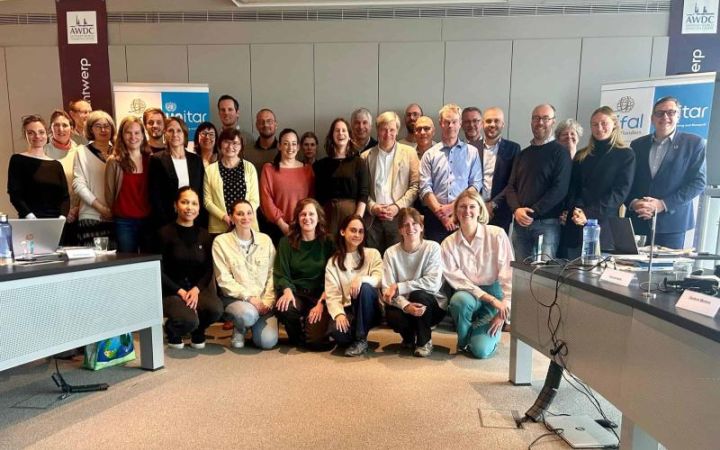Heart Research Institute Senior Exercise Physiologist and Co-ordinator of the Congenital Heart Fitness Intervention Trial (CH-FIT) Dr Derek Tran, said until recently, people born with half a heart or single-ventricle congenital heart disease (Fontan-CHD) were told not to exercise for fear of putting too much strain on their heart.
But now researchers are flipping that notion on its head, as they work to determine whether regular exercise could be the key to improving the life expectancy of CHD patients.
“The CH-FIT exercise program will look at whether aerobic and resistance training can improve heart function, lung growth, fitness, and ultimately life expectancy for people with CHD,” Dr Tran said.
“We want to see if improving fitness is a key marker to an improvement in quality of life. It’s also about giving people the confidence of knowing they can exercise on their own.”
Around 400 people between the ages of 10 and 55 years of age are being recruited across the country for the world-first study to test the exercise theory, which will be the largest ever randomised controlled trial in this cohort.
So far, about 40 people have been signed up across New South Wales and are already putting their fitness to the test. If you are interested in signing up for the study, complete this online registration form.
Participants initially undertake 60 minutes of low to moderate intensity cardio three times a week, which will increase over the four-month program.
They’ll work in either small groups or one-on-one with HRI personal trainers in local Fitness First or Club Lime gyms. Those in regional areas will use a combination of a telehealth service and a tailored exercise program at home, while researchers carefully study the impact exercise has on their physical and psychological wellbeing.

Dr Derek Tran guiding a participant in the trial through some tailored exercises
Dr Tran said the benefits of exercise to the general population are widely known, but it’s not known what effect exercise can have on those with CHD.
“We know that regular exercise provides systemic benefits beyond the heart, to the whole body, including bone density, improving cognition and mental health. We also know that people with CHD are at an increased risk of comorbidities and chronic diseases because, for one reason or another, they’ve been sedentary for much of their lives,” he said.
Leading HRI cardiologist Assoc Prof Rachael Cordina said emerging research suggests exercising could be more important for people with even the most complex types of CHD, because it has special effects on the circulation.
“People living with half a heart have no heart pump to push blood up through the lungs, so they rely heavily on the exercising muscles in the body – but there is hardly any research to understand the true impact of exercise on these special circulations and how to safely implement exercise training,” said Assoc Prof Cordina.
“Historically, people with CHD were not expected to survive to adulthood, and exercise was discouraged fearing too much stress on the heart.
“A whole
generation of children has grown up consciously not exercising, putting
themselves at risk of obesity through their inactivity.
“Some have
developed into adults who are very unfit and don’t meet anywhere near the
physical activity recommendations for the general population,” she said.
Assoc Prof
Cordina said the research will help experts develop clearly defined models of care
to improve and hopefully lengthen the lives of this group of young people who
have often had incredibly challenging life journeys.
There are
about 1,600 people living with Fontan-CHD (“half a heart”) in Australia and New
Zealand and over 100,000 living with other types of complex CHD.
Assoc Prof
Cordina says the research gives families and young people with CHD hope.
“It’s a hope
for a bright future that we just didn’t have in the past, and I think that’s
the most empowering thing science can do,” she said.
Header image: Dr Derek Tran








